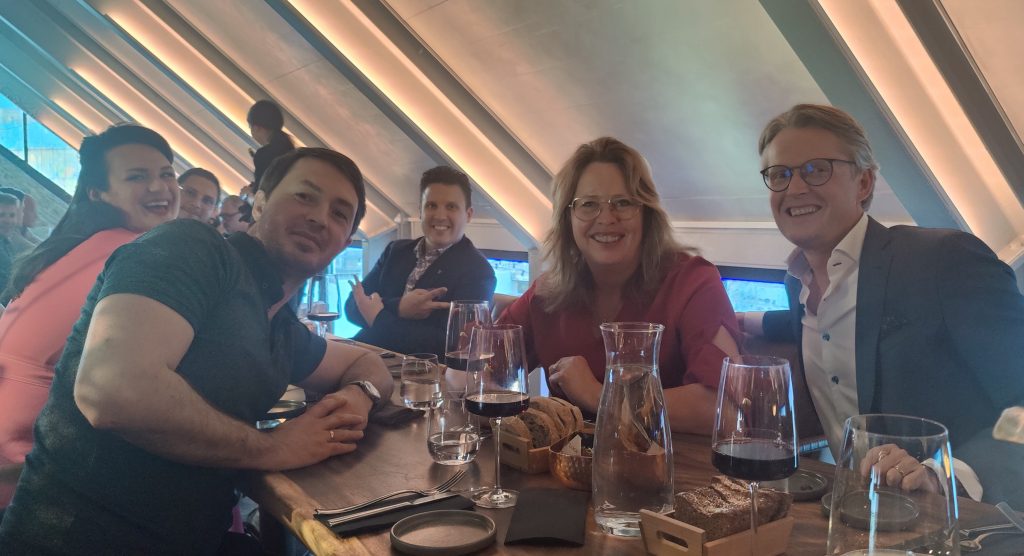Last week, LEGID organized the legal tech conference Future Law 2023 in Estonia in partnership with the European Legal Technology Association (ELTA) and Tallinn University of Technology on May 26-27, 2023. The conference theme was “Discover the new age of Legal Technology.” The conference featured insightful presentations and discussions, including inspiration from Itzik Amiel.
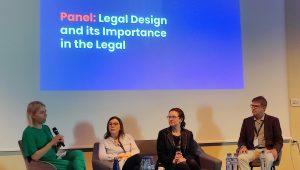 During the panel discussion on legal design Malin Männikkö, Helena Haapio, Anna Hurmerinta Haanpää, and Thomas Hoffman provided examples of how contracts could be made more easily understandable by incorporating illustrations.
During the panel discussion on legal design Malin Männikkö, Helena Haapio, Anna Hurmerinta Haanpää, and Thomas Hoffman provided examples of how contracts could be made more easily understandable by incorporating illustrations.
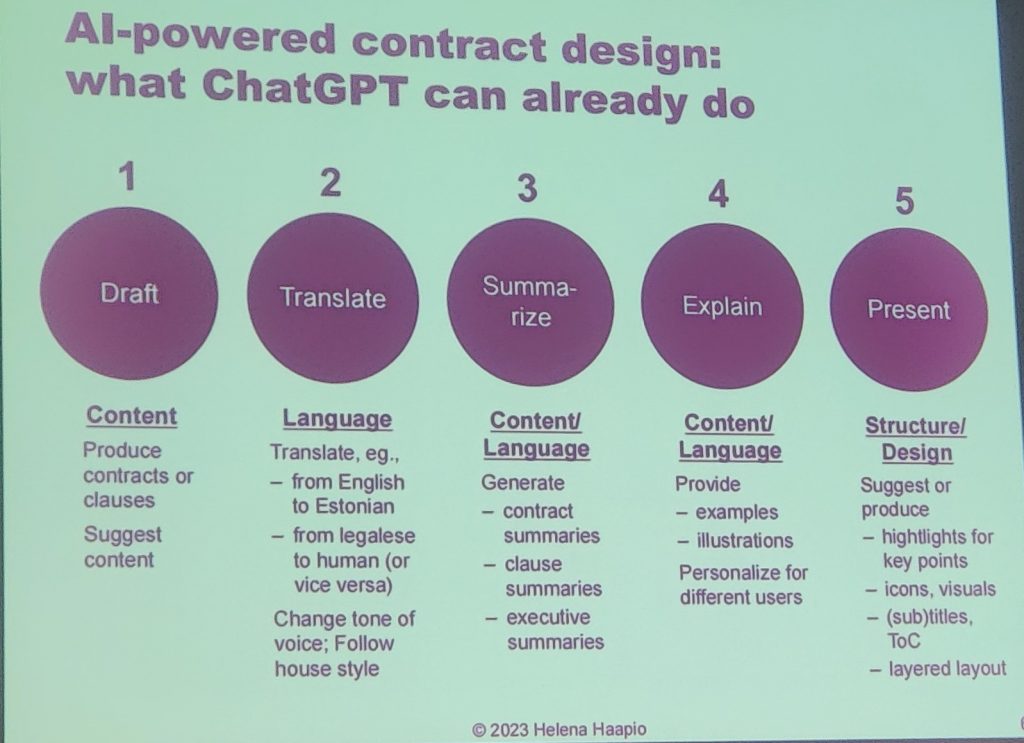
Furthermore, Helena Haapio, a specialist in Legal Design, provided practical insights on utilizing AI tools for contract drafting, translation, and explanation. Her presentation demonstrated how these tools can enhance contract management for all of us today.
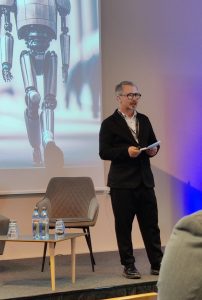 Professor Tanel Kerikmäe, Director of Tallinn Law School, Faculty of Business and Governance, shared his perspective on how AI will transform lawyers into augmented professionals. He emphasized the advantages of using AI to automate repetitive tasks, highlighting its speed and accuracy compared to human lawyers.
Professor Tanel Kerikmäe, Director of Tallinn Law School, Faculty of Business and Governance, shared his perspective on how AI will transform lawyers into augmented professionals. He emphasized the advantages of using AI to automate repetitive tasks, highlighting its speed and accuracy compared to human lawyers. 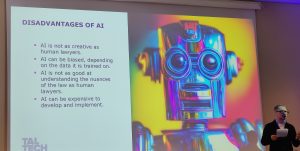 However, he also acknowledged its limitations, such as lacking the creativity of human lawyers and the potential for bias based on the data it is trained on.
However, he also acknowledged its limitations, such as lacking the creativity of human lawyers and the potential for bias based on the data it is trained on.
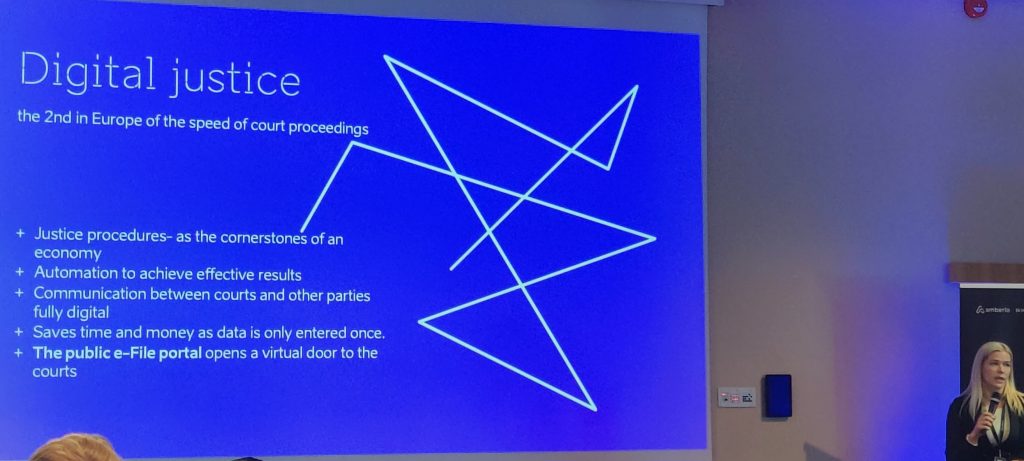 The conference also featured interesting presentations on Estonia’s government initiatives in digitalization. Sandra Särav, Deputy Secretary General for Business and Consumer Environment at the Ministry of Economic Affairs and Communications, explained the challenges posed by excessive regulations and their efforts to develop better laws for improved business regulations, following the principle of “regulate once-only.” Anett Numa, Head of Government Relations and Communications at Estonia’s governmental innovation lab, AccelerateEstonia, presented their focus on digital justice, which has resulted in Estonia ranking second in Europe for the speed of court proceedings.
The conference also featured interesting presentations on Estonia’s government initiatives in digitalization. Sandra Särav, Deputy Secretary General for Business and Consumer Environment at the Ministry of Economic Affairs and Communications, explained the challenges posed by excessive regulations and their efforts to develop better laws for improved business regulations, following the principle of “regulate once-only.” Anett Numa, Head of Government Relations and Communications at Estonia’s governmental innovation lab, AccelerateEstonia, presented their focus on digital justice, which has resulted in Estonia ranking second in Europe for the speed of court proceedings.
Representing VQ, Helena Hallgarn participated in three different panels, moderating two of them. In the panel discussion “Why the Legal Field should Change Now” with panelists Aku Sorainen, Pekka Puolakka, and Valentin Feklistov, they explored how law firms will adapt to the new era of legal tech. The panel also discussed the responsibility of organizing multidisciplinary practice teams capable of delivering new legal services. Helena, as the moderator, emphasized that the billable hour model hinders law firms wanting to innovate and develop scalable legal services with the help of legal tech. A member of the audience, Marcin Milczarek, voiced objections to this viewpoint, leading to an energetic discussion.
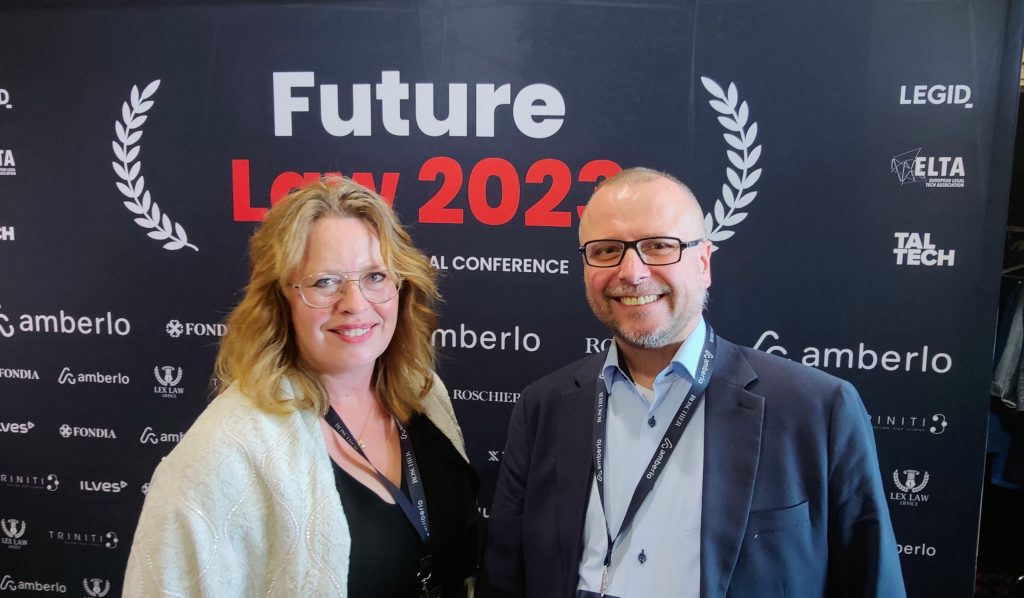
Despite ongoing discussions about the billable hour, the legal sector has witnessed significant changes. Technology now lies at the heart of the legal business, and we have witnessed the emergence of new AI services that can effectively replace certain tasks. This shift has brought us to a point where AI solutions can be employed to deliver services differently. The panel concluded with the quote: “Electric light did not come from the continuous improvements of candles” (by Oren Harari).
Helena also moderated the panel discussion “New Professions in the Legal Industry” with panelists Tanel Kerikmäe, Malin Männikkö, and Brittany Hernandez. They exemplified the new professions at the intersection of law and technology, emphasizing the importance of making young lawyers aware of these opportunities beyond traditional legal advising.
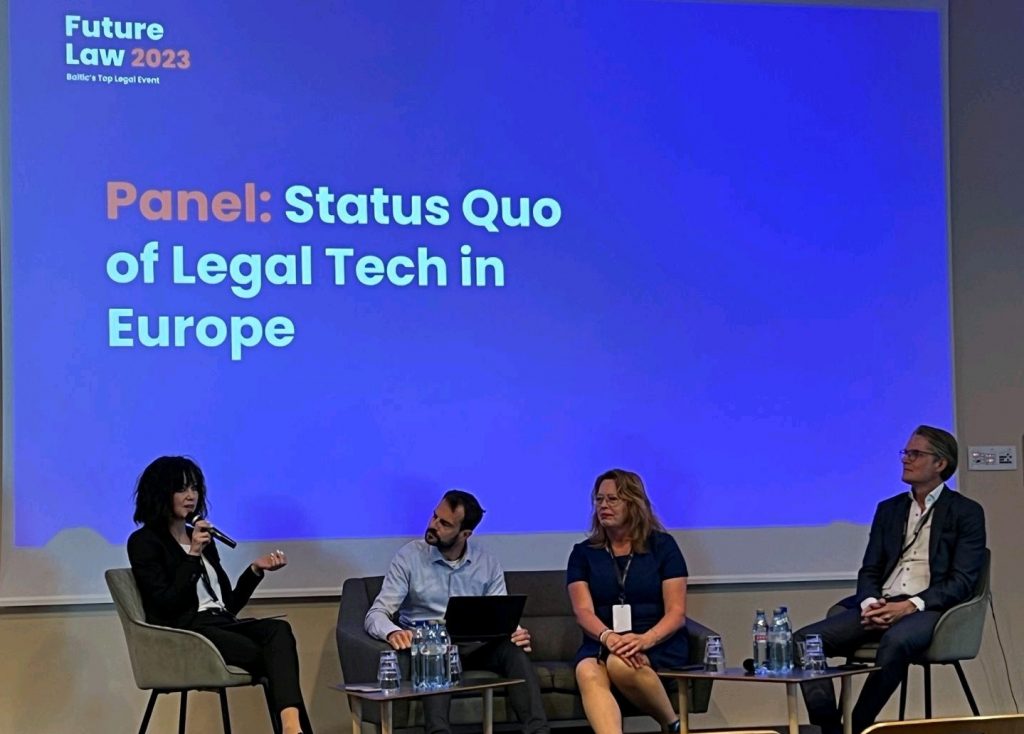
In the panel titled “Status Quo of Legal Tech in Europe,” moderated by Henrik Wehr, Helena participated alongside Heikki Ilvessalo and Margret Anna Einarsdottir. The panel reached the conclusion that an organization like ELTA can greatly facilitate the sharing of information and knowledge, thereby supporting the development of competitive legal tech solutions in Europe.
The key takeaway from these two days is that lawyers will work smarter, not harder. It is crucial to learn how to effectively utilize AI solutions as they can genuinely support and assist us in becoming augmented lawyers. Moreover, it is important to emphasize the role of people. Legal projects cannot succeed without the right individuals possessing the appropriate competences, including the new professions that are now available. These individuals also need strong communication and collaboration skills to ensure the delivery of successful projects.
In this regard, it is worth noting that this conference placed a significant emphasis on networking and engagement. After several years of online meetings, events like these are crucial for the opportunity to genuinely meet and connect with a diverse crowd of individuals who are passionate about the development of legal tech.
